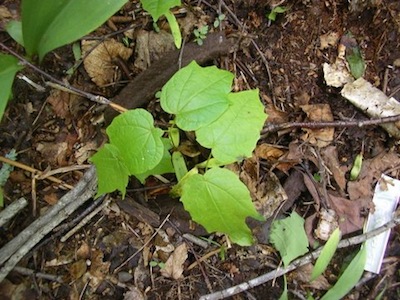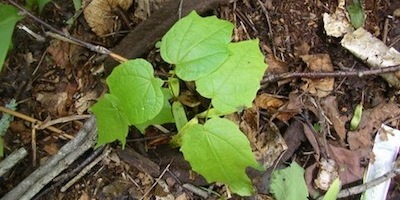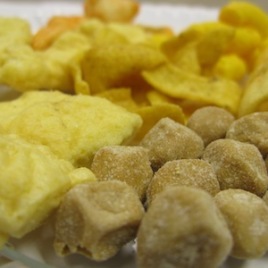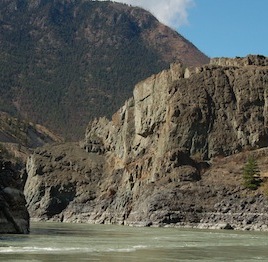
As the climate changes, tree ranges are expected to change with it, but a new experiment with sugar maple seedlings shows that other factors – like soil conditions or seed predation – will play a big role. (Photo credit: Carissa Brown)
A changing climate means trees will grow in new places, but an experiment with sugar maples shows that other factors – such as soil conditions or seed predation – need to be taken into account as well.
Researchers grew maple seedlings on the slopes of a Quebec mountain where climate conditions are more favourable for the trees at the bottom than at the top. To test the effect of soil conditions, they also transported soil from the upper reaches – where maples don’t grow – to the lower reaches and vice versa.
They found that even with favourable climate conditions, maples don’t grow well in soil from higher up the mountain, possibly because of a lack of the soil organisms the trees need. They also found that in the higher reaches, seed predation by small mammals limited the ability of sugar maple to expand its range.
The results suggest that factors such as soil condition and seed predation can cause a time lag in trees colonizing new areas under a changing climate.
Original research paper published in the Proceedings of the Royal Society B: Biological Sciences on September 23, 2014.
Names and affiliations of selected authors


